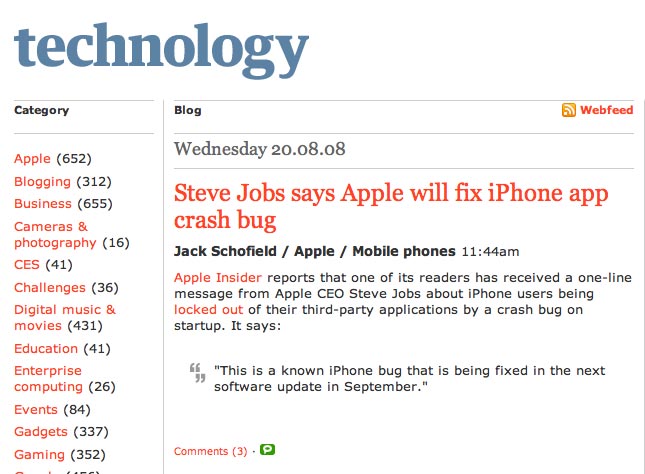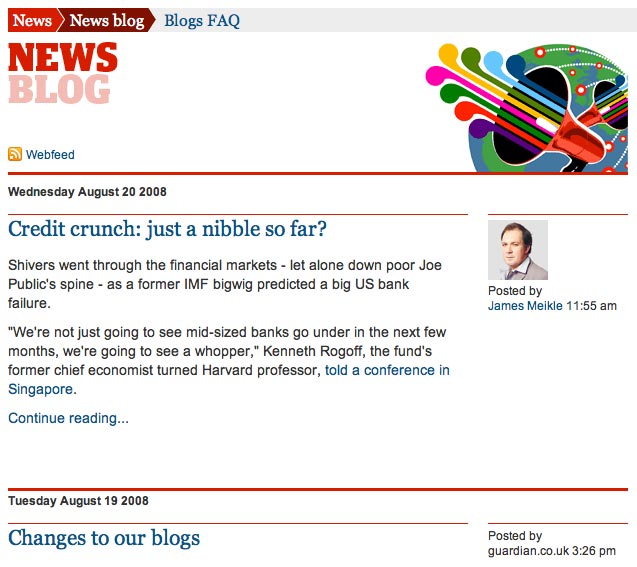Guardian.co.uk is in the process of moving the rest of its blogs to its new R2 platform, an update from the title’s own insider blog reports.
From tomorrow the site’s remaining 23 blogs will join the first phase of blogs, which made the switch last month, and will sport a new design and improved tools for commenting.
Titles making the change tomorrow include the technology blog, arts blog and PDA, which says comments will be turned off on the moving blogs between 4pm and 9pm (BST).
The key features of the new blog design are:
- Keywords linking blog posts to related content across the site
- The relocation of blogs to their relevant sections – e.g. the politics blog in the politics channel
- Blogs now share features introduced across the rest of the redesigned site, including the option to share posts by Digg, del.icio.us etc, and a widget showing the most-linked to Guardian content
- Blog posts are included in the site’s search
- Commenters can have their own user profiles
As previously reported on this blog, the new features were trialled on the site’s Comment Is Free platform and use social media firm Pluck’s commenting technology.
Analysis of the upgrade is already coming in: Shiny Media co-founder Ashley Norris says the move ‘signals the end of the organisation using a traditional blogging approach’.
The new design, says Norris, gives readers only a brief view of the intro to a blog post on a section homepage.
“To read the story users have to click through to the page. The reason the Guardian has done this is that being less generous means more click throughs, more page views per users and subsequently more ad impressions served,” he points out.

